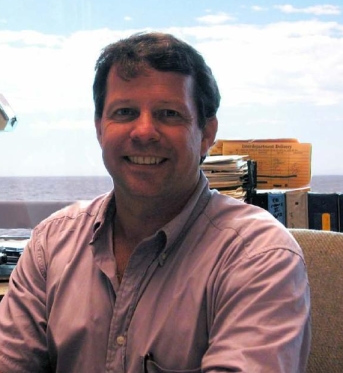David C. White Research and Mentoring Award - 2009
Press
Dr Edward DeLong

Ed DeLong is (Curriculum Vitae) a pathfinding scientist with an enviable world-class reputation for excellence in research and mentoring of the next generation of interdisciplinary microbiologists. His research covers a broad spectrum of topics from genomes to biomes. He developed and applied novel methods for phylogenetic identification, functional characterization, and quantitation of (individual) bacterial species in culture-independent ways; for correlating such measurements with environmental parameters; and for environmental genomic and metagenomic analyses of marine bacterial populations. He has discovered new taxa, metabolic pathways, and photosynthetic pigments. His contributions have been, and continue to be, seminal. Ed also shares his rare brilliance with the outstanding human qualities of kindness, compassion and thoughtfulness.
Ed DeLong has an established record as an outstanding and extremely creative scientist; he has radically changed the field of marine microbial ecology. His research on various aspects of the marine plankton range from coastal habitats to the deep sea, and from laboratory based physiology and molecular biology to field ecology.
DeLong trained in marine biology at the Scripps Institution of Oceanography where he conducted laboratory- and field-based research on novel membrane lipids of deep-sea bacteria. This research resulted in several well cited papers including one in Science (DeLong and Yayanos 1985, "Adaptation of the membrane lipids of a deep-sea bacterium to changes in hydrostatic pressure" Science 228: 1101-1103). After receiving his Ph.D., Ed started down a different path, one that would lead him into research in marine molecular ecology. While most oceanographers were content to observe the emergent promise of molecular biology from afar, Ed made a conscious decision to leave the ocean behind - for a few years - and move to Bloomington, Indiana to work as a post-doc in the laboratory of Norman Pace. It was during that time, in the late 1980's - with Pace at the helm - that the seeds of the molecular ecology revolution in ocean sciences were planted. When the dust settled a few years later Ed and a very few other oceanographers stood tall as the marine pioneers.
DeLong was nominated by David M Karl, professor at University of Hawai'i School of Ocean and Earth Science and Technology.
Presentation
Dr DeLong presented "Exploring the Marine Microbial World: Players, Patterns and Process" at the 109th General Meeting of the ASM. Marine bacteria and archaea are central mediators of oceanic biogeochemical cycles and have turnover rates of about 1 million moles per year. Despite their vast numbers, diversity and prodigious activity, much yet remains to be learned about their biological properties and ecological significance.
Thanks to Dr Karl for supplying biographical information.